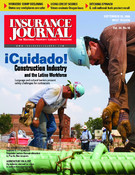Peak hurricane season has arrived. Despite this season’s slow start, people who live along the coast are constantly aware that the next big storm could take shape at any time. This year, however, everyone is also looking back at one of the worst natural disasters ever to hit our country. The winds and floods of Hurricane Katrina have long since abated, but the legacy of suffering Gulf Coast residents and devastated communities persists. Katrina was painful proof that our country was ill-prepared to respond to a catastrophe.
Recently, our nation marked the first anniversary of Hurricane Katrina and many Americans are asking: Are we better prepared for the next disaster, whether it is a hurricane, an epidemic disease, or a terrorist attack? The answer is that America is better prepared than a year ago, but we still have a great deal of work to do.
I chaired the Senate’s Katrina investigation that heard from 400 people, reviewed 838,000 pages of documents and included 23 hearings. The Homeland Security Committee found that the halting and hesitant response to Hurricane Katrina represented, first and foremost, a failure of leadership at all levels of government, despite the heroic performance of a few agencies such as the Coast Guard. The investigation also uncovered systemic problems that must be fixed.
The challenge we face in responding effectively to disasters is not just about levees, hurricanes or the Gulf Coast, it is about plans and protections. No one knows where the next great disaster will occur or what form it will take. We only know that some disasters will entail mass casualties, horrific destruction, disruption of communications and emergency-response systems, and a pressing need for rapid assistance with evacuation, search-and-rescue, sheltering, law-enforcement, medical care, and other efforts. We must improve preparedness, response, and recovery capabilities at all levels of government, so that the next disaster on the scale of Katrina — whether it is an ice storm in Maine, an earthquake in Missouri, a biological-weapons attack in New York, or an avian-flu outbreak in California — will leave a much less tragic legacy.
Some progress has been made. The Department of Homeland Security (DHS) has a new logistics system that tracks vital supplies, so that shipments don’t go missing — or end up like the surplus ice from Katrina, being stored in Portland, Maine, or dumped in the polar-bear enclosure at an Arizona zoo. DHS also has pre-positioned food and water in far greater quantities than a year ago. Another important sign of progress: more training has occurred, bringing together emergency managers and first responders at all levels of government.
Other reforms are in progress. The Senate overwhelmingly approved a bill that I authored with Senator Joe Lieberman that will reform the Federal Emergency Management Agency (FEMA). If our House colleagues agree, FEMA will become a stronger, more effective agency with 10 regionally based strike teams that will train with their state and local counterparts and work with the private sector. No longer will emergency managers be exchanging business cards in the midst of a crisis.
Despite the progress, much more work remains to be done. To remedy a major shortcoming exposed by Katrina, we must ensure that communications systems are survivable and that emergency responders can talk to one another. We must make clear who is responsible for what role at which level of government. We must act to mitigate known hazards. And we must ensure that strong controls are in place to prevent the waste, fraud, and abuse that has plagued the Katrina effort.
Lax or absent controls allowed prison inmates to receive emergency rental assistance and allowed debit cards to be used to purchase luxury vacations and diamond rings instead of food and shelter. Ineffective screening permitted multiple applications. Wasteful purchases included $750 million worth of mobile homes that were barred by FEMA’s own regulations from being set up in flood plains. They sit unused to this day in Hope, Ark.
The waste we discovered points to larger problems, including an inexcusable lack of internal controls and safeguards. If a federal “chief financial officer” had been appointed to apply controls and monitor purchases — as some advocated — much of this waste could have been avoided, and more aid could have been delivered to the true victims. That simple step needs to be part of the response to future catastrophes.
Hurricane Katrina was a wake-up call. If government at all levels failed so miserably in responding to a storm that had been tracked for days and predicted for years, how much worse would the response have been to a terrorist attack with no warning at all? We must learn from Katrina before we are faced with another catastrophe, whether from nature or man-made.
Susan M. Collins, R-Maine, was elected to the U.S. Senate in 1996 and was re-elected to a second term in 2002. Collins is the chair of the Homeland Security and Governmental Affairs Committee, which has jurisdiction over the Department of Homeland Security and is the Senate’s chief oversight committee. This was taken from her weekly column for constituents.
Topics Catastrophe Hurricane
Was this article valuable?
Here are more articles you may enjoy.


 Uber Jury Awards $8.5 Million Damages in Sexual Assault Case
Uber Jury Awards $8.5 Million Damages in Sexual Assault Case  MAPFRE Denied Injunction Against AAA Auto Insurance Sales in Massachusetts
MAPFRE Denied Injunction Against AAA Auto Insurance Sales in Massachusetts  AIG, Chubb Can’t Use ‘Bump-Up’ Provision in D&O Policy to Avoid Coverage
AIG, Chubb Can’t Use ‘Bump-Up’ Provision in D&O Policy to Avoid Coverage  Chubb CEO Greenberg on Personal Insurance Affordability and Data Centers
Chubb CEO Greenberg on Personal Insurance Affordability and Data Centers 


